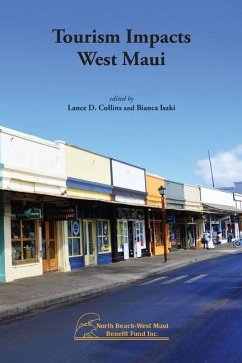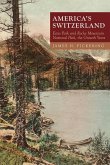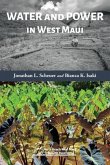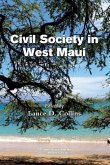West Maui has been the site of rapid, drastic changes to landscape, communities, governance, and economy. This collection addresses the ways tourism both changed West Maui and how changes brought to West Maui made a tourist economy viable. Each chapter tells a story of the ways different communities experienced the transformation of West Maui from an agrarian area into one dominated by industrial tourism. While focused on site-specific histories of West Maui, this volume is of significant interest to tourism studies, regional and urban planning, and Hawai‘i and Hawaiian historians.
Bitte wählen Sie Ihr Anliegen aus.
Rechnungen
Retourenschein anfordern
Bestellstatus
Storno








